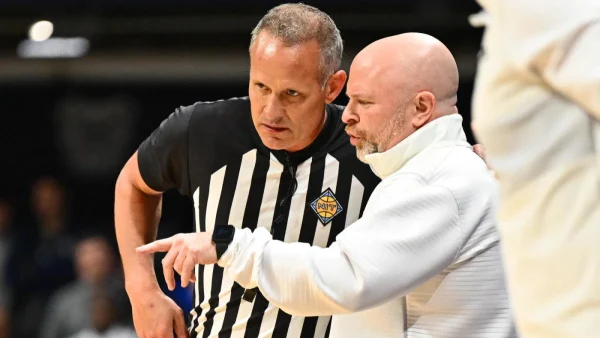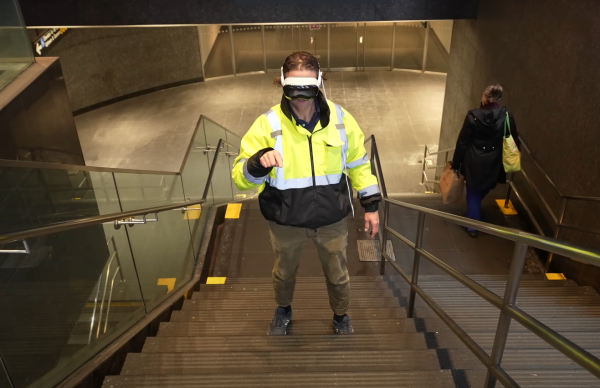Break Up With Your High School Sweetheart Before College

One of the hardest things I went through as a teenager was when my high school sweetheart and I parted ways for college. On the day of our breakup, I cried silently as I shuffled through our old pictures together, feeling betrayed and hopeless. The last three years of our lives consisted of us going through every high and low together, so when the relationship reached its inevitable end, I could not comprehend why the breakup even happened. Quite frankly, I never thought I would understand why things ended when they did, but time grants us a powerful tool: hindsight. Today I look back on our relationship and confidently say that its end—especially the timing—was the best thing that ever happened to me.
My time in college taught me two things about high school relationships: their purpose is to teach adolescents relationship etiquette and how to set healthy boundaries. That’s it. While young love is raw, beautiful and unlike anything one will ever feel, it often represents a form of immature connection that is built on values of comfort and familiarity. The main reason for this is that when a person is young, they are not looking for someone who will challenge them, support their long-term life goals, or encourage them to be the best version of themselves. Most teenagers will enter relationships only to have a stable figure to confide in, explore intimacy with and have someone to take to school dances. High school dynamics usually just boil down to whoever’s available, who the person is decently attracted to and most importantly, someone who seems willing enough to be by their side. It is rare for high school relationships to be built on the mature values of trust, integrity, honesty and commitment–the qualities that arguably allow relationships to last in the long term. And there’s nothing wrong with that; our young adult years are there for us to learn these lessons. But the harsh truth stands: high school relationships are often rooted in escape–be it from unhealthy family dynamics, tough classes or demanding sports teams. The main problem with pursuing relationships based on these ulterior motives is that they will likely wear out as soon as someone finds themselves in a different environment.
College changes everything as it represents a period of re-discovery. As a person slowly shifts into their new identity as an adult, they will realize that the expectations for the people they surround themselves with change drastically. As one starts to get a new feel for their new selves, they will find that their standards for relationships–both intimate and platonic–are shifting. Maturation highlights the necessity of surrounding oneself with people who hold themselves accountable and encourage growth in themselves and others. As a result, it is critical to pursue partners who aren’t only independent, but also value ambition, integrity and honesty, because that is the only way we evolve and become better people. Unfortunately, due to a lack of basic emotional maturity, high school relationships will often bring negative qualities such as codependency, clinginess and controlling behaviors with them. Because of this, it isn’t uncommon for people to realize that their significant other from high school no longer aligns with who they are as a person. A quality that someone may have loved in another person in their teens is something that they may grow to detest a few years later. That is completely normal and healthy.. High school couples choosing to break up during this period almost never indicates anything negative about either person as the dissolution often represents necessary growth. The bottom line is that someone’s soulmate when they are seventeen may no longer be their soulmate when they are twenty-three. People change and that is a normal, healthy part of being human. We have the choice of closing this chapter of our lives as we realize that the last thing we need during this critical period is someone who holds us back. Who wants to be spending their Friday nights confined to their dorm room fighting with their long-distance partner on FaceTime because they miss each other and can’t deal with it? Who wants to constantly be fighting with their high school sweetheart who committed to the same college as them because they don’t like the new friends their partner made–or better yet–how much their partner changed? During this time, it is essential that one’s significant other will be someone who will selflessly support their partner through the most important point of development in their life. One cannot expect to have a happy and successful future when the person they are closest to is selfish, problematic and only cares about having their needs met.
College stripped off the rose colored lenses I viewed my high school relationship through and showed me the reality of how things really were. The simple truth was that my ex and I were different people who wanted different things from life. As a matter of fact, college has changed us both so much that had we met today, the odds of us pursuing a relationship together would be slim to none. As people, there was nothing wrong with either of us. But we also reacted to life’s ups and downs differently. Our interests did not align in the slightest. The person I once believed was my soulmate was someone I couldn’t come to an agreement about which music to play in the car. Neither of us were in the wrong for what we wanted, but the bottom line was that his life was headed in a completely different direction from mine, which I saw but refused to accept. We stayed in the relationship not because we loved each other for who we were, but because we loved how comfortable we made each other feel. That is wrong. Had we stayed together through college, we simply wouldn’t have been able to thrive and grow into the people we are today.
So is dating in high school doomed? Is it completely pointless to have a “high school sweetheart?” My answer is absolutely not. But it does come with acknowledging that a major part of growing up is understanding that some people are placed in our lives to serve as learning lessons in order to help us grow into better human beings, and that their presence was never meant to be permanent.
Your donation will support the student journalists of Saint Louis University. Your contribution will help us cover our annual website hosting costs.











